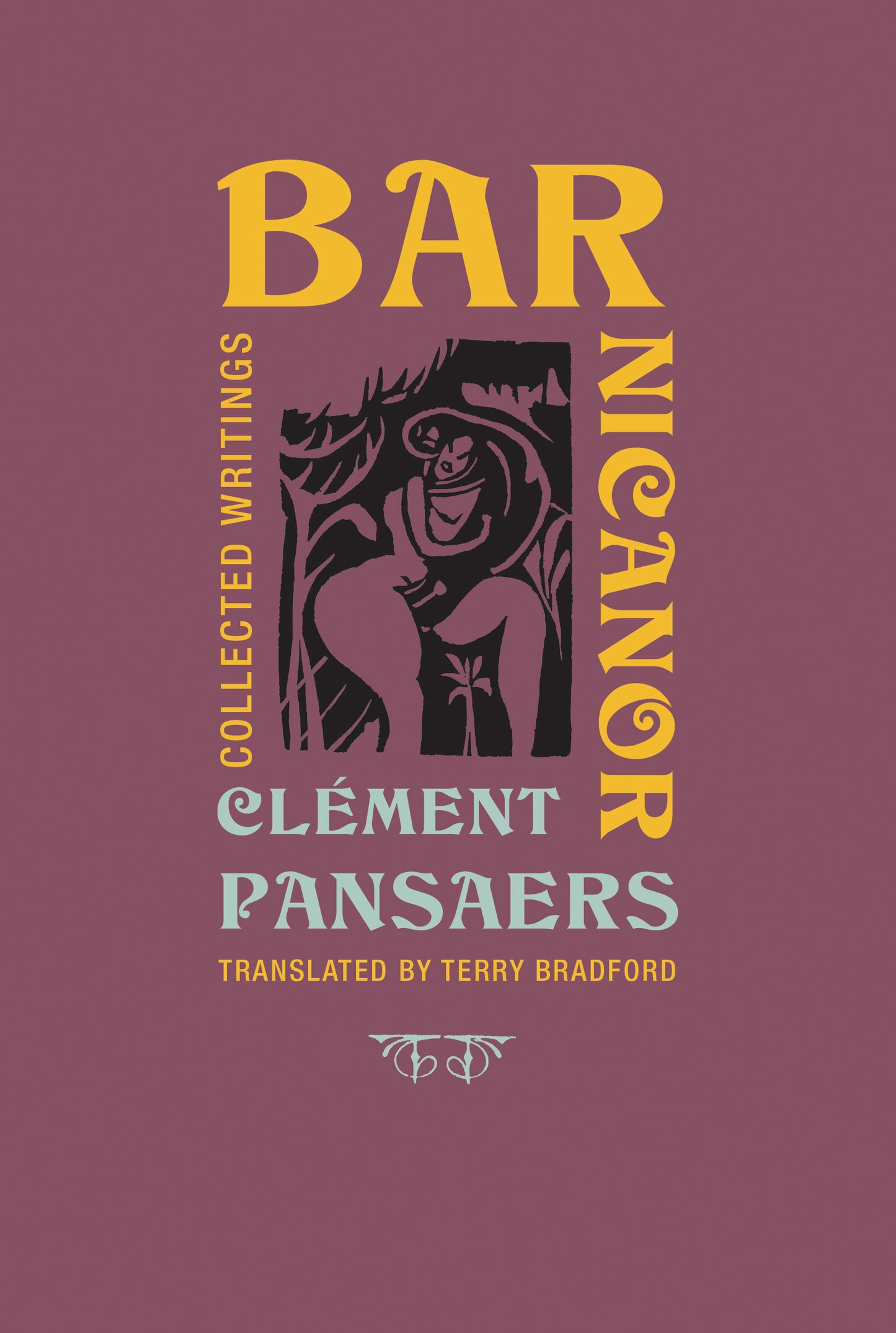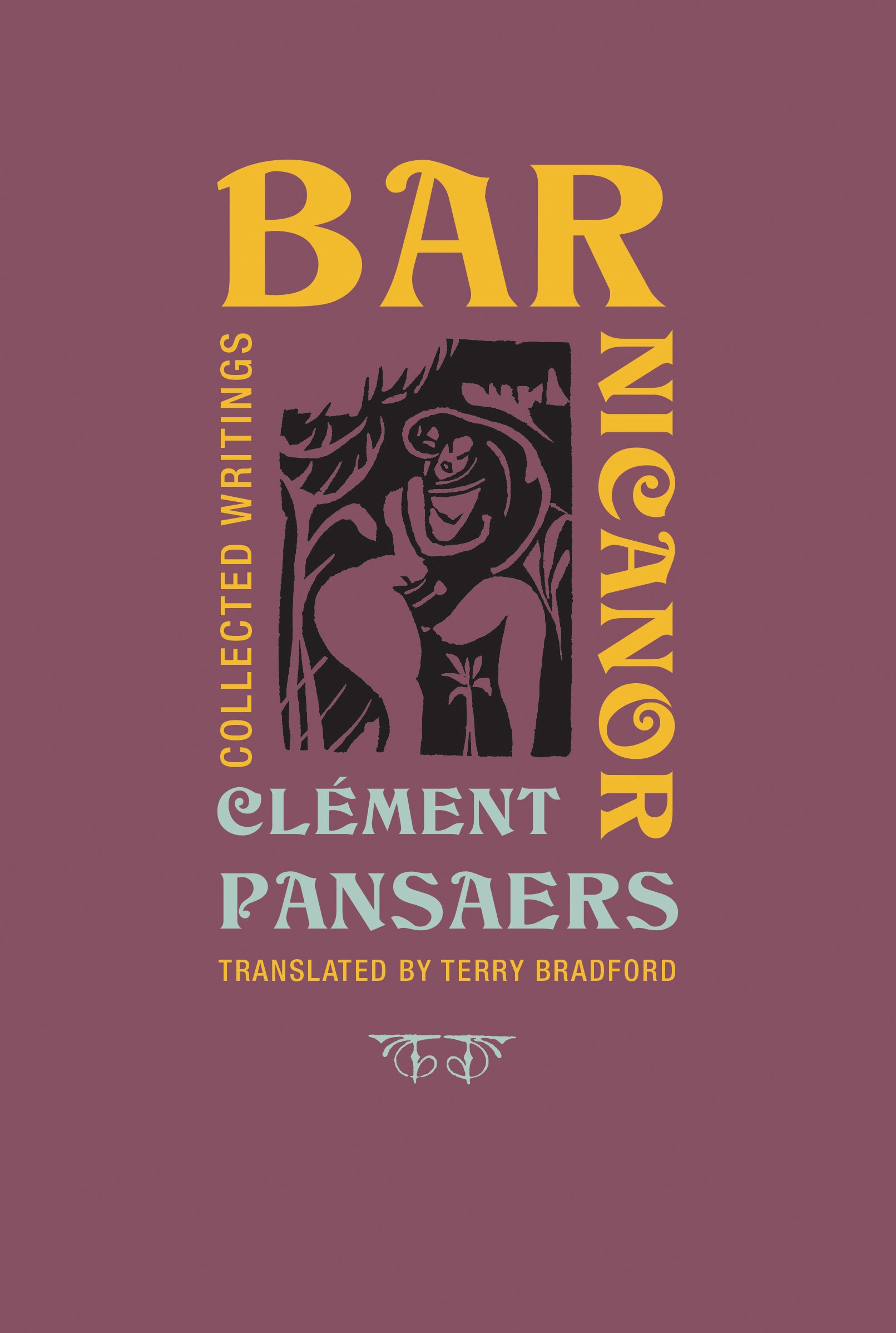Bar Nicanor: Collected Writings
Bar Nicanor: Collected Writings
Clément Pansaers
Couldn't load pickup availability
Translated, with an introduction, by Terry Bradford / June 2026 / 5.375 x 8, 296 pp. / 12 B&W illustrations / 978-1-962728-12-6
“And so, war has not caused enough of a massacre, for the postwar period is methodically organizing the business of massacre. The industry of thought has been systematized. The trade of language is the corollary of this. Self-interested utilitarian egotisms are making new beds of roses. There are traveling salesmen of fellowship just as there are career communists, all exploiting the imbecile masses.”—Clément Pansaers
After entering the literary world under the pseudonym Julius Krekel—a Flemish-language poet of sentimental verse—Clément Pansaers discovered he was to be a father, encountered the legacy of Zhuang Zhou, and proceeded to spend six months meditating on a blind white wall until he was reborn in 1916 under his own name. “The only interesting thing in life,” he discovered, “is creativity overlapping with chance.”
Turning to the French language, Pansaers launched the journal Résurrection and began writing some of the most radical poetry of his era. His new direction would lead almost inevitably to the Dada movement and his move to Paris where his meteoric passage soon heralded the Dada’s demise, one that he was the first to announce in the journal issue he devoted to it in Belgium.
Bar Nicanor: Collected Writings collects all of the reborn Pansaers’s work, including the “Lent Meditations” and Apology for Laziness; the even more radical books published under the banner of Dada, The Pan-Pan in the Butt of the Negro Nude and Bar Nicanor; and the posthumous I Blennorrhage and Programmatic Fermata for Young Orangutan. Also included are the essays he published in various journals, including “DADA and Me,” in which he signaled the end of the Dada movement, and what remains of the novel he had been working on at the end of his life, Lamprido, based on the characters of himself and his good friend, anarchist, and art historian Carl Einstein.
Clément Pansaers (1885–1922) turned to poetry after abandoning his career as an Egyptologist. He was the primary representative of Dada in Belgium as well as the first to declare the death of the movement (and proclaim himself its killer). He was ensconced in an international literary and artistic community that extended from Belgium to France and Germany. With friends who ranged from Francis Picabia to James Joyce, Pansaers produced a body of poetic work that earned the admiration of everyone from Ezra Pound to Tristan Tzara. His early death from Hodgkin’s disease, however, contributed to him and his work being forgotten for half a century until its rediscovery. His poetry is now recognized as some of the most radical of the Dada movement.


